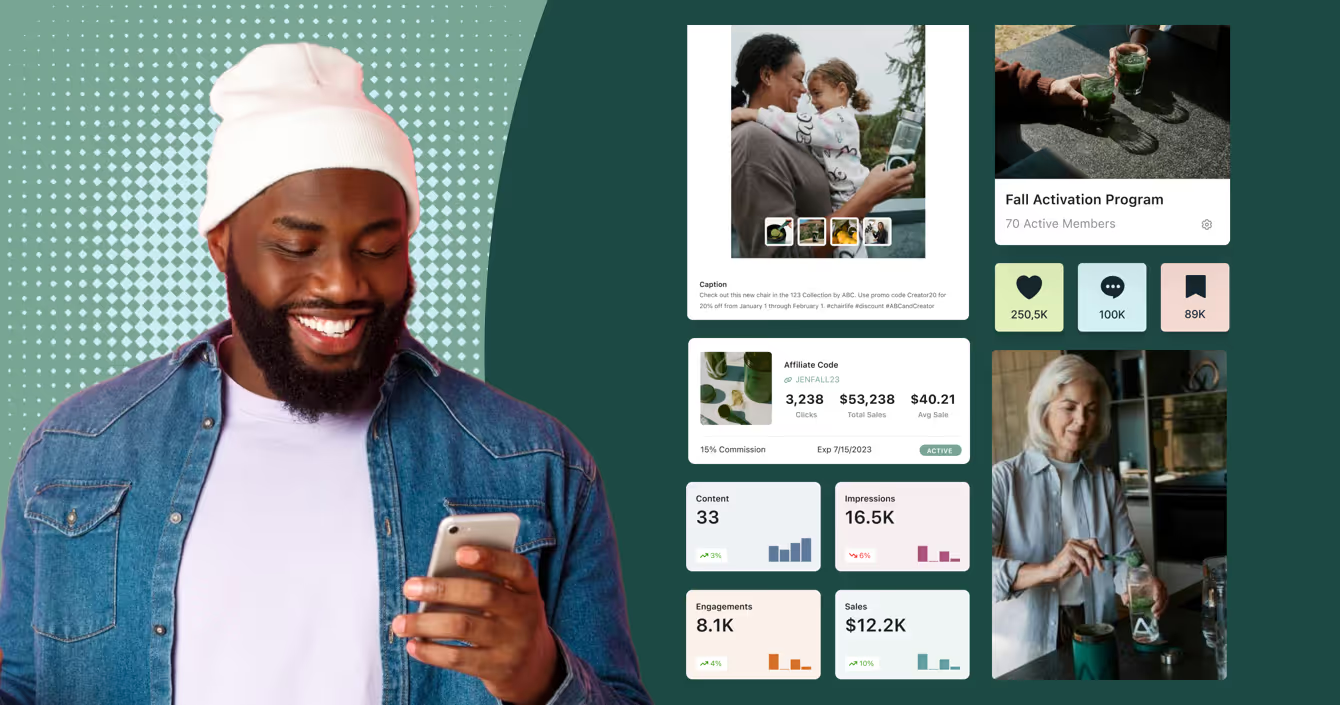Employees as Influencers: The New Face of Brand Advocacy

Employees are an integral part of any successful business — and we’re not just talking about the work they do behind the scenes. When supported and amplified, employees can do far more for your brand than just fulfill their job descriptions.
Whether they work in your corporate offices or in brick-and-mortar retail stores, employees go into work everyday to ultimately help drive growth and profit for the business. When you think about it, they are some of the best advocates for any company because their daily routine revolves around improving the brand and its products.
And since they have such a big hand in building the business — from product development to sales — they are looked at as true brand experts. It’s no surprise your customers ask employees for product recommendations and advice before making purchases. In other words, employees are some of the most effective influencers for your brand.
Research validates just how important employee advocacy programs are.
- Audiences increase 561% when a brand message is shared by employees versus shared via a corporate channel alone.
- Leads see 7x more conversion frequency when developed through employee social media.
- 90% of your employee network is new to your brand, meaning you’ll open up a previously untapped audience.
Employee advocacy programs aren’t a new concept — but today, we’re seeing brands harness the power of their own work force in more innovative ways. In this blog, we’re exploring the unique ways that top brands are activating the hard-working individuals behind the company to drive impact for their business — and how you, too, can leverage employees as influencers going forward.
Brand founders are leading the pack.
Whether your brand is a celebrity-endorsed label or a grassroots startup, the presence of a relatable persona fosters a deeper connection with consumers than a faceless brand. That’s why some of the savviest brands today even have their very own founders acting as influencers.
There’s no one more passionate about a brand than the company’s founder. That’s why so many executives are grabbing the marketing reins and leveraging their own social media channels to boost brand awareness and drive sales for the business.
Emily Weiss of Glossier and Matilda Djerf of Djerf Avenue are some of the earliest pioneers in this strategy. Upon launching their brands, both founders leveraged their existing social followings to showcase their products while sharing personal anecdotes, which allowed their audiences to meet the individual behind the brand. By doing so, both brands have fostered a loyal customer base and have become household names in their respective industries over the years.
Perhaps inspired by these pioneers, newer brand founders like Nadya Okamoto of period care brand August also leverages her personal social channels to educate her followers about the importance of equitable period care. By mixing in her brand’s story with her personal lifestyle content, Nadya has gained over 4 million followers on her TikTok channel and another 367K on August’s TikTok account — driving significant brand awareness while reducing marketing costs.
This kind of human-centric approach to marketing resonates far better with today’s younger consumers, who value authenticity over glossy facades.
Social media managers are becoming the new “face” of the brand.
Similar to founders acting as influencers, social media managers are playing an increasingly important role in building a significant brand presence online. The most successful businesses today have social media managers who get in front of the camera and share what goes on behind the scenes. Because audiences can put a face (and a personality) to your brand’s name — as opposed to a faceless corporate entity — they trust and connect with your brand messages more.
Social media managers at brands like White Fox Boutique, Ryan Air, and Lululemon have been killing the game, quickly jumping onto trends, showcasing their office culture, sharing about new products, and getting more personal.
Even social media managers in mascot costumes like the famous Duolingo owl, Duo, have been making a huge splash on social. Duo is the brainchild of Duolingo’s Global Social Media Manager Zaria Parvez, who creates funny TikToks and exchanges witty rapport with the brand’s community via the comments section.
Because Duo has a recognizable personality and consistent “storylines” — including a one-sided rivalry with Google Translate, and its “crush” on Dua Lipa — audiences are excited to follow along and engage with every video Duolingo posts. And it goes beyond just fun and games. In addition to amassing a whopping 12.4 million TikTok followers and millions of views per video, Duolingo’s marketing strategy has boosted tangible ROI for the company, with a 62% increase in daily active users from last year and securing its place as a top-downloaded education app.
Beyond having social media experts managing their organic social channels, these brands’ biggest key to success is creative freedom. These employees seem to have an ample amount of creative liberty to produce content that aligns with trends — so much so that the content sometimes even feel “unhinged.” But because this is exactly the type of “lo-fi” content consumers look for today, brands like Duolingo can resonate with consumers in a more authentic way.
This also signals a newer trend in the social media marketing marketing landscape, which brings us to our next point:
Brands are hiring in-house content creators.
Rather than just working with creators on a one-off sponsorship basis, forward-thinking brands are hiring experienced content creators as full-time employees. Because these individuals have a pulse on fast-moving social trends, they’re able to quickly brainstorm and execute brilliant content ideas, and interact with the brand’s followers in a way that resonates. Not to mention, they already have an audience dedicated to following their content everywhere they go.
Take SET Active, for example. Last year, the brand hired TikTok creator Sam Vicchiolo (2.2 million followers) as the brand’s Social Media Manager. Because Sam is an experienced content creator, he’s able to effortlessly produce funny and relatable content for the brand, give behind-the-scenes sneak peeks at their product launches, and naturally invite Gen Z to connect with the brand.
Marketing expert @thebrandblueprint summarizes SET Active’s successful content strategy in the video below.
Brands are activating retail employees.
Have you ever visited Sephora and left with a product recommended by an employee? I know I have. Because they’re trained to have a depth of knowledge about your products and to interact with customers in a helpful way, employees at your brick-and-mortar stores are very effective sales drivers.
That’s why a growing number of brands are tapping into the power of their retail associates — not just their social media managers — and featuring them on social media.
At Abercrombie & Fitch, for example, anyone can be an “influencer.” In addition to the brand’s traditional influencer marketing efforts, the company amplifies its retail store associates and corporate employees as content creators. For instance, a few months ago, a team of Abercrombie’s retail employees went live on TikTok to showcase how to style the brand’s new Baggy Jeans.
Megan Brophy, VP of Brand Marketing at Abercrombie & Fitch, told Modern Retail, “At the end of the day, we’re all humans, we all have influence and we all consume. So it’s really about creating some content that resonates.”
Empower employees to supercharge brand advocacy
Chances are, you have some really passionate employees on your team. These individuals can serve as some of your best brand advocates because they have a lot of product knowledge and thoroughly understand the company’s values. So, harness the power of these employees, turn them into influencers, and let them tell your story in an authentic way.
Ready to streamline your employee-influencer program? Book a demo to see how Aspire can help.
Learn more about how influencer marketing is evolving in our webinar, The Next Era of Influencer Marketing: Word-of-Mouth Commerce. Watch it on demand now.


